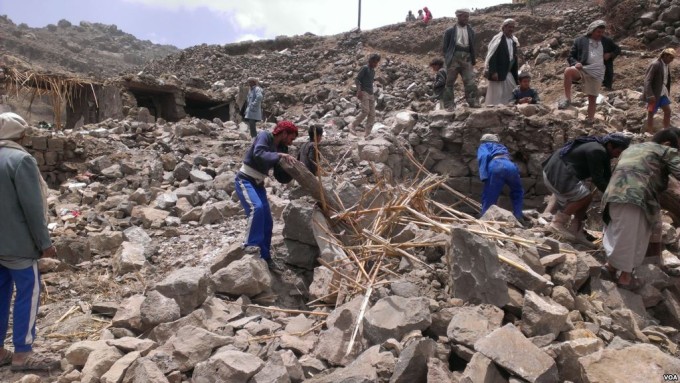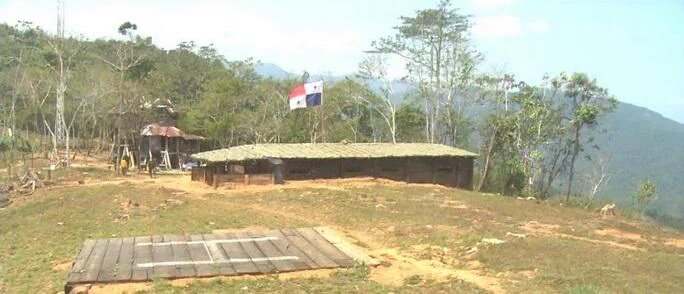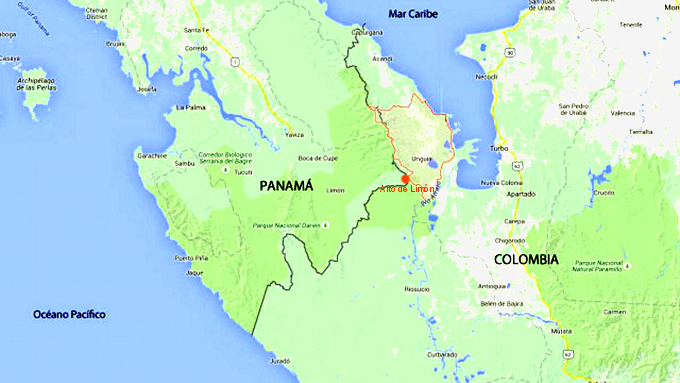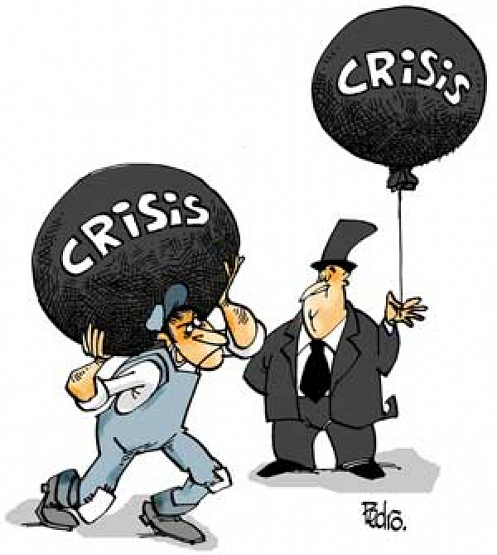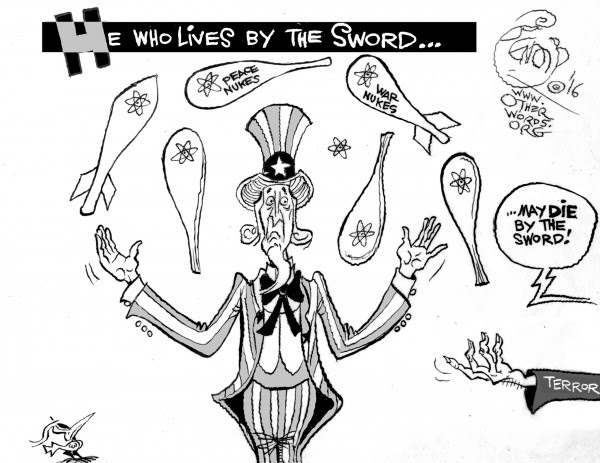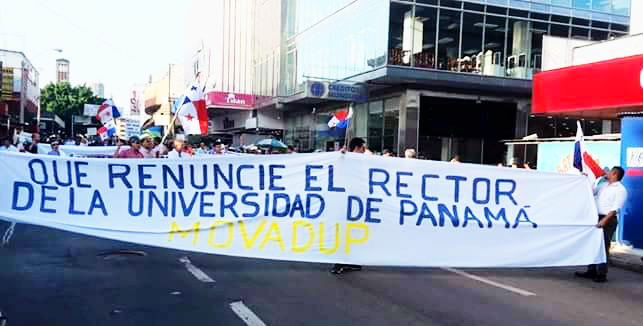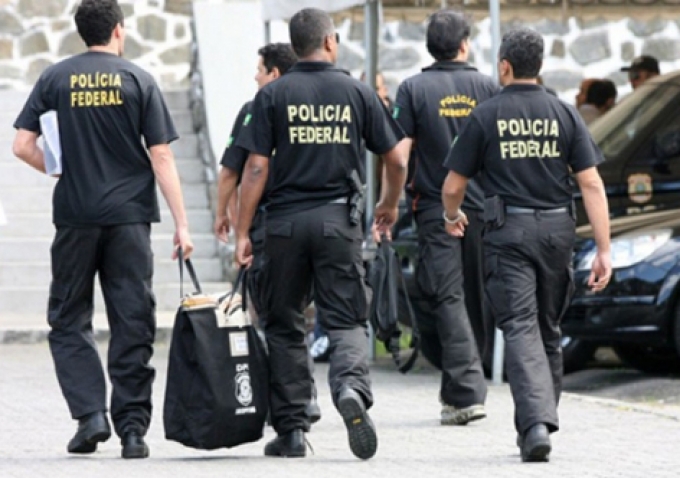 Hillary Clinton
Hillary Clinton
[Editor’s note: This the transcript of her remarks to the AIPAC conference.]
It is wonderful to be here and see so many friends. I’ve spoken at a lot of AIPAC conferences in the past, but this has to be one of the biggest yet, and there are so many young people here, thousands of college students…
(APPLAUSE) … from hundreds of campuses around the country. I think we should all give them a hand for being here and beginning their commitment to this important cause.
(APPLAUSE)
You will keep the US-Israel relationship going strong. You know, as a senator from New York and secretary of State…
(APPLAUSE)
I’ve had the privilege of working closely with AIPAC members to strengthen and deepen America’s ties with Israel. Now, we may not have always agreed on every detail, but we’ve always shared an unwavering, unshakable commitment to our alliance and to Israel’s future as a secure and democratic homeland for the Jewish people.
(APPLAUSE)
And your support helped us expand security and intelligence cooperation, developed the Iron Dome missile defense system, build a global coalition to impose the toughest sanctions in history on Iran and so much more.
Since my first visit to Israel 35 years ago, I have returned many times and made many friends. I have worked with and learned from some of Israel’s great leaders — although I don’t think Yitzhak Rabin ever forgave me for banishing him to the White House balcony when he wanted to smoke.
(LAUGHTER)
Now I am here as a candidate for president, and…
(APPLAUSE)
I know that all of you understand what’s at stake in this election. Our next president will walk into the Oval Office next January and immediately face a world of both perils we must meet with strength and skill, and opportunities we must seize and build on.
The next president will sit down at that desk and start making decisions that will affect both the lives and livelihoods of every American, and the security of our friends around the world. So we have to get this right.
As AIPAC members, you understand that while the turmoil of the Middle East presents enormous challenge and complexity, walking away is not an option.
(APPLAUSE)
Candidates for president who think the United States can outsource Middle East security to dictators, or that America no longer has vital national interests at stake in this region are dangerously wrong.
(APPLAUSE)
It would be a serious mistake for the United States to abandon our responsibilities, or cede the mantle of leadership for global peace and security to anyone else.
(APPLAUSE)
As we gather here, three evolving threats — Iran’s continued aggression, a rising tide of extremism across a wide arc of instability, and the growing effort to de-legitimize Israel on the world stage — are converging to make the US-Israel alliance more indispensable than ever.
(APPLAUSE)
We have to combat all these trends with even more intense security and diplomatic cooperation. The United States and Israel must be closer than ever, stronger than ever and more determined than ever to prevail against our common adversaries and to advance our shared values.
(APPLAUSE)
This is especially true at a time when Israel faces brutal terrorist stabbings, shootings and vehicle attacks at home. Parents worry about letting their children walk down the street. Families live in fear. Just a few weeks ago, a young American veteran and West Point graduate named Taylor Force was murdered by a Palestinian terrorist near the Jaffa Port. These attacks must end immediately…
(APPLAUSE)
And Palestinian leaders need to stop inciting violence, stop celebrating terrorists as martyrs and stop paying rewards to their families.
(APPLAUSE)
Because we understand the threat Israel faces we know we can never take for granted the strength of our alliance or the success of our efforts. Today, Americans and Israelis face momentous choices that will shape the future of our relationship and of both our nations. The first choice is this: are we prepared to take the US-Israel alliance to the next level?
This relationship has always been stronger and deeper than the headlines might lead you to believe. Our work together to develop the Iron Dome saved many Israeli lives when Hamas rockets began to fly.
(APPLAUSE)
I saw its effectiveness firsthand in 2012 when I worked with Prime Minister Netanyahu to negotiate a cease fire in Gaza. And if I’m fortunate enough to be elected president, the United States will reaffirm we have a strong and enduring national interest in Israel’s security.
(APPLAUSE)
And we will never allow Israel’s adversaries to think a wedge can be driven between us.
(APPLAUSE)
As we have differences, as any friends do, we will work to resolve them quickly and respectfully. We will also be clear that the United States has an enduring interest in and commitment to a more peaceful, more stable, more secure Middle East. And we will step up our efforts to achieve that outcome.
(APPLAUSE)
Indeed, at a time of unprecedented chaos and conflict in the region, America needs an Israel strong enough to deter and defend against its enemies, strong enough to work with us to tackle shared challenges and strong enough to take bold steps in the pursuit of peace.
(APPLAUSE)
That’s why I believe we must take our alliance to the next level. I hope a new 10-year defense memorandum of understanding is concluded as soon as possible to meet Israel’s security needs far into the future.
(APPLAUSE)
That will also send a clear message to Israel’s enemies that the United States and Israel stand together united.
It’s also why, as president, I will make a firm commitment to ensure Israel maintains its qualitative military edge.
(APPLAUSE)
The United States should provide Israel with the most sophisticated defense technology so it can deter and stop any threats. That includes bolstering Israeli missile defenses with new systems like the Arrow Three and David’s Sling. And we should work together to develop better tunnel detection, technology to prevent armed smuggling, kidnapping and terrorist attacks.
(APPLAUSE)
One of the first things I’ll do in office is invite the Israeli prime minister to visit the White House.
(APPLAUSE)
And I will send a delegation from the Pentagon and the joint chiefs to Israel for early consultations. Let’s also expand our collaboration beyond security. Together, we can build an even more vibrant culture of innovation that tightens the links between Silicon Valley and Israeli tech companies and entrepreneurs.
(APPLAUSE)
There is much Americans can learn from Israel, from cybersecurity to energy security to water security and just on an everyday people-to-people level. And it’s especially important to continue fostering relationships between American and Israeli young people who may not always remember our shared past. They are the future of our relationship and we have to do more to promote that.
Many of the young people here today are on the front lines of the battle to oppose the alarming boycott, divestment and sanctions movement known as BDS.
(APPLAUSE)
Particularly at a time when anti-Semitism is on the rise across the world, especially in Europe, we must repudiate all efforts to malign, isolate and undermine Israel and the Jewish people.
(APPLAUSE)
I’ve been sounding the alarm for a while now. As I wrote last year in a letter to the heads of major American Jewish organizations, we have to be united in fighting back against BDS. Many of its proponents have demonized Israeli scientists and intellectuals, even students.
To all the college students who may have encountered this on campus, I hope you stay strong. Keep speaking out. Don’t let anyone silence you, bully you or try to shut down debate, especially in places of learning like colleges and universities.
(APPLAUSE)
Anti-Semitism has no place in any civilized society, not in America, not in Europe, not anywhere.
(APPLAUSE)
Now, all of this work defending Israel’s legitimacy, expanding security and economic ties, taking our alliance to the next level depends on electing a president with a deep, personal commitment to Israel’s future as a secure, Democratic Jewish state, and to America’s responsibilities as a global leader.
Tonight, you’ll hear from candidates with very different visions of American leadership in the region and around the world. You’ll get a glimpse of a potential US foreign policy that would insult our allies, not engage them, and embolden our adversaries, not defeat them.
For the security of Israel and the world, we need America to remain a respected global leader, committed to defending and advancing the international order.
(APPLAUSE)
An America able to block efforts to isolate or attack Israel. The alternative is unthinkable.
(APPLAUSE)
Yes, we need steady hands, not a president who says he’s neutral on Monday, pro-Israel on Tuesday, and who knows what on Wednesday, because everything’s negotiable.
(APPLAUSE)
Well, my friends, Israel’s security is non-negotiable.
(APPLAUSE)
I have sat in Israeli hospital rooms holding the hands of men and women whose bodies and lives were torn apart by terrorist bombs. I’ve listened to doctors describe the shrapnel left in a leg, an arm or even a head.
That’s why I feel so strongly that America can’t ever be neutral when it comes to Israel’s security or survival. We can’t be neutral when rockets rain down on residential neighborhoods, when civilians are stabbed in the street, when suicide bombers target the innocent. Some things aren’t negotiable.
(APPLAUSE)
And anyone who doesn’t understand that has no business being our president.
(APPLAUSE)
CLINTON: The second choice we face is whether we will have the strength and commitment to confront the adversaries that threaten us, especially Iran. For many years, we’ve all been rightly focused on the existential danger of Iran acquiring a nuclear weapon. After all, this remains an extremist regime that threatens to annihilate Israel. That’s why I led the diplomacy to impose crippling sanctions and force Iran to the negotiating table, and why I ultimately supported the agreement that has put a lid on its nuclear program.
(APPLAUSE)
Today Iran’s enriched uranium is all but gone, thousands of centrifuges have stopped spinning, Iran’s potential breakout time has increased and new verification measures are in place to help us deter and detect any cheating. I really believe the United States, Israel and the world are safer as a result.
But still, as I laid out at a speech at the Brookings Institution last year, it’s not good enough to trust and verify. Our approach must be distrust and verify.
(APPLAUSE)
This deal must come with vigorous enforcement, strong monitoring, clear consequences for any violations and a broader strategy to confront Iran’s aggression across the region. We cannot forget that Tehran’s fingerprints are on nearly every conflict across the Middle East, from Syria to Lebanon to Yemen.
The Iranian Revolutionary Guard Corps and its proxies are attempting to establish a position on the Golan from which to threaten Israel, and they continue to fund Palestinian terrorists. In Lebanon, Hezbollah is amassing an arsenal of increasingly sophisticated rockets and artillery that well may be able to hit every city in Israel.
Tonight, you will hear a lot of rhetoric from the other candidates about Iran, but there’s a big difference between talking about holding Tehran accountable and actually doing it. Our next president has to be able to hold together our global coalition and impose real consequences for even the smallest violations of this agreement.
(APPLAUSE)
We must maintain the legal and diplomatic architecture to turn all the sanctions back on if need. If I’m elected the leaders of Iran will have no doubt that if we see any indication that they are violating their commitment not to seek, develop or acquire nuclear weapons, the United States will act to stop it, and that we will do so with force if necessary.
(APPLAUSE)
Iranian provocations, like the recent ballistic missile tests, are also unacceptable and should be answered firmly and quickly including with more sanctions.
(APPLAUSE)
Those missiles were stamped with words declaring, and I quote, “Israel should be wiped from the pages of history.” We know they could reach Israel or hit the tens of thousands of American troops stationed in the Middle East. This is a serious danger and it demands a serious response.
(APPLAUSE)
The United States must also continue to enforce existing sanctions and impose additional sanctions as needed on Iran and the Revolutionary Guard for their sponsorship of terrorism, illegal arms transfers, human rights violations and other illicit behaviors like cyber attacks. We should continue to demand the safe return of Robert Levinson and all American citizens unjustly held in Iranian prisons.
(APPLAUSE)
And we must work closely with Israel and other partners to cut off the flow of money and arms from Iran to Hezbollah. If the Arab League can designate all of Hezbollah as a terrorist organization, surely it is time for our friends in Europe and the rest of the international community to do so as well and to do that now.
(APPLAUSE)
At the same time, America should always stand with those voices inside Iran calling for more openness. Now look, we know the supreme leader still calls the shots and that the hard-liners are intent on keeping their grip on power. But the Iranian people themselves deserve a better future, and they are trying to make their voices heard. They should know that America is not their enemy, they should know we will support their efforts to bring positive change to Iran.
(APPLAUSE)
Now, of course, Iran is not the only threat we and Israel face. The United States and Israel also have to stand together against the threat from ISIS and other radical jihadists. An ISIS affiliate in the Sinai is reportedly stepping up attempts to make inroads in Gaza and partner with Hamas. On Saturday, a number of Israelis and other foreigners were injured or killed in a bombing in Istanbul that may well be linked to ISIS. Two of the dead are US-Israeli dual nationals.
This is a threat that knows no borders. That’s why I’ve laid out a plan to take the fight to ISIS from the air, on the ground with local forces and online where they recruit and inspire. Our goal cannot be to contain ISIS, we must defeat ISIS.
(APPLAUSE) And here is a third choice. Will we keep working toward a negotiated peace or lose forever the goal of two states for two peoples? Despite many setbacks, I remain convinced that peace with security is possible and that it is the only way to guarantee Israel’s long-term survival as a strong Jewish and democratic state.
(APPLAUSE)
CLINTON: It may be difficult to imagine progress in this current climate when many Israelis doubt that a willing and capable partner for peace even exists. But inaction cannot be an option. Israelis deserve a secure homeland for the Jewish people. Palestinians should be able to govern themselves in their own state, in peace and dignity. And only a negotiated two-state agreement can survive those outcomes.
(APPLAUSE)
If we look at the broader regional context, converging interests between Israel and key Arab states could make it possible to promote progress on the Israeli-Palestinian issue. Israelis and Palestinians could contribute toward greater cooperation between Israel and Arabs.
I know how hard all of this is. I remember what it took just to convene Prime Minister Netanyahu and President Abbas for the three sessions of direct face-to-face talks in 2010 that I presided over. But Israelis and Palestinians cannot give up on the hope of peace. That will only make it harder later.
All of us need to look for opportunities to create the conditions for progress, including by taking positive actions that can rebuild trust — like the recent constructive meetings between the Israeli and Palestinian finance ministers aiming to help bolster the Palestinian economy, or the daily on-the-ground security cooperation between Israel and the Palestinian Authority.
But at the same time, all of us must condemn actions that set back the cause of peace. Terrorism should never be encouraged or celebrated, and children should not be taught to hate in schools. That poisons the future.
(APPLAUSE)
Everyone has to do their part by avoiding damaging actions, including with respect to settlements. Now, America has an important role to play in supporting peace efforts. And as president, I would continue the pursuit of direct negotiations. And let me be clear — I would vigorously oppose any attempt by outside parties to impose a solution, including by the UN Security Council.
(APPLAUSE)
There is one more choice that we face together, and in some ways, it may be the most important of all. Will we, as Americans and as Israelis, stay true to the shared democratic values that have always been at the heart of our relationship? We are both nations built by immigrants and exiles seeking to live and worship in freedom, nations built on principles of equality, tolerance and pluralism.
(APPLAUSE)
At our best, both Israel and America are seen as a light unto the nations because of those values.
(APPLAUSE)
This is the real foundation of our alliance, and I think it’s why so many Americans feel such a deep emotional connection with Israel. I know that I do. And it’s why we cannot be neutral about Israel and Israel’s future, because in Israel’s story, we see our own, and the story of all people who struggle for freedom and self-determination. There’s so many examples. You know, we look at the pride parade in Tel Aviv, one of the biggest and most prominent in the world.
(APPLAUSE)
And we marvel that such a bastion of liberty exists in a region so plagued by intolerance. We see the vigorous, even raucous debate in Israeli politics and feel right at home.
(LAUGHTER)
And, of course, some of us remember a woman, Golda Meir, leading Israel’s government decades ago and wonder what’s taking us so long here in America?
(APPLAUSE)
But we cannot rest on what previous generations have accomplished. Every generation has to renew our values. And, yes, even fight for them. Today, Americans and Israelis face currents of intolerance and extremism that threaten the moral foundations of our societies.
Now in a democracy, we’re going to have differences. But what Americans are hearing on the campaign trail this year is something else entirely: encouraging violence, playing coy with white supremacists, calling for 12 million immigrants to be rounded up and deported, demanding we turn away refugees because of their religion, and proposing a ban on all Muslims entering the United States.
Now, we’ve had dark chapters in our history before. We remember the nearly 1,000 Jews aboard the St. Louis who were refused entry in 1939 and sent back to Europe. But America should be better than this. And I believe it’s our responsibility as citizens to say so.
(APPLAUSE)
If you see bigotry, oppose it. If you see violence, condemn it. If you see a bully, stand up to him.
(APPLAUSE)
On Wednesday evening, Jews around the world will celebrate the Festival of Purim, and children will learn the story of Esther, who refused to stay silent in the face of evil. It wasn’t easy. She had a good life. And by speaking out, she risked everything.
But as Mordecai reminded her, we all have an obligation to do our part when danger gathers. And those of us with power or influence have a special responsibility to do what’s right. As Elie Wiesel said when accepting the Nobel Peace Prize, “Neutrality helps the oppressor, never the victim. Silence encourages the tormentor, never the tormented.”
So, my friends, let us never be neutral or silent in the face of bigotry. Together let’s defend the shared values that already make America and Israel great.
(APPLAUSE)
CLINTON: Let us do the hard work necessary to keep building our friendship and reach out to the next generation of Americans and Israelis so the bonds between our nations grow even deeper and stronger. We are stronger together, and if we face the future side by side, I know for both Israel and America, our best days are still ahead.
Thank you so much.
 Bernie Sanders
Bernie Sanders
[Editor’s note: In past years, major speakers invited by AIPAC have been given the option of speaking to the event on a t.v. hook up, but when Senator Sanders requested that this year, his request was denied. So he gave this speech where he was compaigning but the 20,000 people attending the AIPAC conference did not get to hear him.]
I was invited along with other presidential candidates to be at the AIPAC conference in Washington, but obviously I could not make it because we are here.
The issues that AIPAC is dealing with are very important issues and I wanted to give the same speech here as I would have given if we were at that conference.
Let me begin by saying that I think I am probably the only candidate for president who has personal ties with Israel. I spent a number of months there when I was a young man on a kibbutz, so I know a little bit about Israel.
Clearly, the United States and Israel are united by historical ties. We are united by culture. We are united by our values, including a deep commitment to democratic principles, civil rights and the rule of law.
Israel is one of America’s closest allies, and we – as a nation – are committed not just to guaranteeing Israel’s survival, but also to make sure that its people have a right to live in peace and security.
To my mind, as friends – long term friends with Israel – we are obligated to speak the truth as we see it. That is what real friendship demands, especially in difficult times.
Our disagreements will come and go, and we must weather them constructively.
But it is important among friends to be honest and truthful about differences that we may have.
America and Israel have faced great challenges together. We have supported each other, and we will continue to do just that as we face a very daunting challenge and that is the Israeli-Palestinian conflict.
I am here to tell the American people that, if elected president, I will work tirelessly to advance the cause of peace as a partner and as a friend to Israel.
But to be successful, we have also got to be a friend not only to Israel, but to the Palestinian people, where in Gaza unemployment today is 44 percent and we have there a poverty rate which is almost as high.
So when we talk about Israel and Palestinian areas, it is important to understand that today there is a whole lot of among Palestinians and that cannot be ignored. You can’t have good policy that results in peace if you ignore one side.
The road toward peace will be difficult. Wonderful people, well-intentioned people have tried decade after decade to achieve that and it will not be easy. I cannot tell you exactly how it will look – I do not believe anyone can – but I firmly believe that the only prospect for peace is the successful negotiation of a two-state solution.
The first step in that road ahead is to set the stage for resuming the peace process through direct negotiations.
Progress is never made unless people are prepared to sit down and talk to each other. This is no small thing. It means building confidence on both sides, offering some signs of good faith, and then proceeding to talks when conditions permit them to be constructive. Again, this is not easy, but that is the direction we’ve got to go.
This will require compromises on both sides, but I believe it can be done. I believe that Israel, the Palestinians, and the international community can, must, and will rise to the ocassion and do what needs to be done to achieve a lasting peace in a region of the world that has seen so much war, so much conflict and so much suffering.
Peace will require the unconditional recognition by all people of Israel’s right to exist. It will require an end to attacks of all kinds against Israel.
Peace will require that organizations like Hamas and Hezbollah renounce their efforts to undermine the security of Israel. It will require the entire world to recognize Israel.
Peace has to mean security for every Israeli from violence and terrorism.
But peace also means security for every Palestinian. It means achieving self-determination, civil rights, and economic well-being for the Palestinian people.
Peace will mean ending what amounts to the occupation of Palestinian territory, establishing mutually agreed upon borders, and pulling back settlements in the West Bank, just as Israel did in Gaza – once considered an unthinkable move on Israel’s part.
That is why I join much of the international community, including the US State Department and European Union, in voicing my concern that Israel’s recent expropriation of an additional 579 acres of land in the West Bank undermines the peace process and, ultimately, Israeli security as well.
It is absurd for elements within the Netanyahu government to suggest that building more settlements in the West Bank is the appropriate response to the most recent violence. It is also not acceptable that the Netanyahu government decided to withhold hundreds of millions of Shekels in tax revenue from the Palestinians, which it is supposed to collect on their behalf.
But, by the same token, it is also unacceptable for President Abbas to call for the abrogation of the Oslo Agreement when the goal should be the ending of violence.
Peace will also mean ending the economic blockade of Gaza. And it will mean a sustainable and equitable distribution of precious water resources so that Israel and Palestine can both thrive as neighbors.
Right now, Israel controls 80 percent of the water reserves in the West Bank. Inadequate water supply has contributed to the degradation and desertification of Palestinian land. A lasting a peace will have to recognize Palestinians are entitled to control their own lives and there is nothing human life needs more than water.
Peace will require strict adherence by both sides to the tenets of international humanitarian law. This includes Israeli ending disproportionate responses to being attacked – even though any attack on Israel is unacceptable.
We recently saw a dramatic example of just how important this concept is. In 2014, the decades-old conflict escalated once more as Israel launched a major military campaign against Hamas in the Gaza Strip. The Israeli offensive came after weeks of indiscriminate rocket fire into its territory and the kidnapping of Israeli citizens.
Of course, I strongly object to Hamas’ long held position that Israel does not have the right to exist – that is unacceptable. Of course, I strongly condemn indiscriminate rocket fire by Hamas into Israeli territory, and Hamas’ use of civilian neighborhoods to launch those attacks. I condemn the fact that Hamas diverted funds and materials for much-needed construction projects designed to improve the quality of life of the Palestinian people, and instead used those funds to construct a network of tunnels for military purposes.
However, let me also be very clear: I – along with many supporters of Israel – spoke out strongly against the Israeli counter attacks that killed nearly 1,500 civilians and wounded thousands more. I condemned the bombing of hospitals, schools and refugee camps.
Today, Gaza is still largely in ruins. The international community must come together to help Gaza recover. That doesn’t mean rebuilding factories that produce bombs and missiles – but it does mean rebuilding schools, homes and
hospitals that are vital to the future of the Palestinian people.
These are difficult subjects. They are hard to talk about both for many Americans and for Israelis. I recognize that, but it is clear to me that the path toward peace will require tapping into our shared humanity to make hard but just decisions.
Nobody can tell you when peace will be achieved between Israel and the Palestinians. No one knows the exact order that compromises will have to be made to reach a viable two-state solution. But as we undertake that work together, the United States will continue its unwavering commitment to the safety of Israeli citizens and the country of Israel.
Let me just say a word about an overall agenda for the Middle East.
Of course, beyond the Palestinian question, Israel finds itself in the midst of a region in severe upheaval.
First, the so-called Islamic State – ISIS – threatens the security of the entire region and beyond, including our own country and our allies. Secretary of State Kerry was right to say that ISIS is committing genocide, and there is no doubt in my mind that the United States must continue to participate in an international coalition to destroy this barbaric organization.
While obviously much needs to be done, so far our effort has had some important progress, as airstrikes have degraded ISIS’ military capacity, and the group has lost more than 20 percent of its territory in the past year.
So we are making some progress.
But we are entering a difficult period in the campaign against ISIS.
The government in Baghdad has yet to achieve a sustainable political order that unites Iraq’s various ethnic and sectarian factions, which has limited its ability to sustain military victories against ISIS. Unless there is a united government, it’s going to be hard to be effective in destroying ISIS.
More inclusive, stable governance in Iraq will be vital to inflict a lasting defeat on ISIS. Otherwise, ISIS could regain its influence or another, similar organization may spring up in its place.
In Syria, the challenges are even more difficult. The fractured nature of the civil war there has often diluted the fight against ISIS – exemplified by the Russian airstrikes that prioritized hitting anti-Assad fighters rather than ISIS. And, just like in Iraq, ISIS cannot be defeated until the groups that take territory from ISIS can responsibly govern the areas they take back. Ultimately, this will require a political framework for all of Syria.
The US must also play a greater role disrupting the financing of ISIS and efforts on the Internet to turn disaffected youth into a new generation of terrorists.
While the US has an important role to play in defeating ISIS, that struggle must be led by the Muslim countries themselves on the ground. I agree with King Abdullah of Jordan who a number of months ago that what is going on there right now is nothing less than a battle for the soul of Islam and the only people who will effectively destroy ISIS there will be Muslim troops on the ground.
So what we need is a coalition of those countries.
Now, I am not suggesting that Saudi Arabia or any other states in the region invade other countries, nor unilaterally intervene in conflicts driven in part by sectarian tensions.
What I am saying is that the major powers in the region – especially the Gulf States – have to take greater responsibility for the future of the Middle East and the defeat of ISIS.
What I am saying is that countries like Qatar – which intends to spend up to $200 billion to host the 2022 World Cup – Qatar which per capita is the wealthiest nation in the world – Qatar can do more to contribute to the fight Against ISIS. If they are prepared to spend $200 billion for a soccer tournament, then they have got to spend a lot spend a lot more against a barbaric organization.
What I am also saying is that other countries in the region – like Saudi Arabia, which has the 4th largest defense budget in the world – has to dedicate itself more fully to the destruction of ISIS, instead of other military adventures like the one it is pursuing right now in Yemen.
And keep in mind that while ISIS is obviously a dangerous and formidable enemy, ISIS has only 30,000 fighters on the ground. So when we ask the nations in the region to stand up to do more against ISIS – nations in the region which have millions of men and women under arms – we know it is surely within their capability to destroy ISIS.
Now the United States has every right in the world to insist on these points. Remember – I want everybody to remember – that not so many years ago it was the United States and our troops that reinstalled the royal family in Kuwait after Saddam Hussein’s invasion in 1990. We put these people back on the throne. Now they have the obligation to work with us and other countries to destroy ISIS.
The very wealthy – and some of these countries are extraordinarily wealthy from oil money or gas money – these very wealthy and powerful nations in the region can no longer expect the United States to do their work for them. Uncle Sam cannot and should not do it all. We are not the policeman of the world.
As we continue a strongly coordinated effort against ISIS, the United States and other western nations should be supportive of efforts to fight ISIS and al-Qaeda. But it is the countries in the region that have to stand up against these violently extremist and brutal organizations.
Now I realize that given the geopolitics of the region this is not going to be easy. I realize that there are very strong and historical disagreements between different countries in the region about how ISIS should be dealt with.
I realize different countries have different priorities. But we can help set the agenda and mobilize stronger collective action to defeat ISIS in a lasting way.
Bottom line is the countries in the region – countries which by the way are most threatened by ISIS – they’re going to have to come together, they’re going to have to work out their compromises, they are going to have to lead the effort with the support of the United States and other major powers in destroying ISIS.
Another major challenge in the region, of course, is the Syrian Civil War itself – one of the worst humanitarian disasters in recent history.
After five years of brutal conflict, the only solution in Syria will be, in my view, a negotiated political settlement. Those who advocate for stronger military involvement by the US to oust Assad from power have not paid close enough attention to history. That would simply prolong the war and increase the chaos in Syria, not end it.
In other words, we all recognize that Assad is a brutal dictator. But I think that our priorities right now have got to be destroy ISIS, work out a political settlement with Russia and Iran to get Assad out of power.
I applaud Secretary Kerry and the Obama administration for negotiating a partial ceasefire between the Assad regime and most opposition forces. The ceasefire shows the value of American-led diplomacy, rather than escalating violence. It may not seem like a lot, but it is. Diplomacy in this instance has had some real success.
Let me also say what I think most Americans now understand, that for a great military power like the United States it is easy to use a war to remove a tyrant from power, but it is much more difficult to comprehend the day after that tyrant is removed from power and a political vacuum occurs.
All of us know what has occurred in Iraq. We got rid of Saddam Hussein, a brutal, brutal murderer and a tyrant. And yet we created massive instability in that region which led to the creation of ISIS. I am very proud to have been one of the members in Congress to vote against that disastrous war.
And the situation is not totally dissimilar from what has happened in Libya. We got rid of a terrible dictator there, Colonel Gaddafi, but right now chaos has erupted and ISIS now has a foothold in that area.
Bottom line is that regime change for a major power like us is not hard. But understanding what happens afterward is something that always has got to be taken into consideration.
In my view, the military option for a powerful nation like ours – the most powerful nation in the world – should always be on the table. That’s why we have the most powerful military in the world. But it should always be the last resort not the first resort.
Another major challenge in the region is Iran, which routinely destabilizes the Middle East and threatens the security of Israel.
Now, I think all of us agree that Iran must not be able to acquire a nuclear weapon. That would just destabilize the entire region and create disastrous consequences.
Where we may disagree is how to achieve that goal. I personally strongly supported the nuclear deal with the United States, France, China, Germany, Russia, the United Kingdom and Iran because I believe it is the best hope to prevent Iran from developing a nuclear weapon.
I want to thank the Obama administration for doing a very good job under very, very difficult circumstances.
I believe we have an obligation to pursue diplomatic solutions before resorting to military intervention.
You know it is very easy for politicians to go before the people and talk about how tough we are, and we want to wipe out everybody else. But I think if we have learned anything from history is that we pursue every diplomatic option before we resort to military intervention.
And interestingly enough, more often than not, diplomacy can achieve goals that military intervention cannot achieve. And that is why I supported the sanctions that brought Iran to the negotiating table and allowed us to reach an agreement.
But let me tell you what I firmly believe. The bottom line is this: if successfully implemented – and I think it can be – the nuclear deal will prevent Iran from obtaining a nuclear weapon. And preventing Iran from getting the bomb makes the world a safer place.
Does the agreement achieve everything I would like? Of course not.
But to my mind, it is far better than the path we were on with Iran developing nuclear weapons and the potential for military intervention by the United States and Israel growing greater by the day.
I do not accept the idea that the “pro-Israel” position was to oppose the deal.
Preventing Iran from getting a nuclear weapon will strengthen not only the United States’ security, but Israel’s security as well.
And I am not alone in that idea. While Prime Minister Netanyahu is vocally opposed to the accord, his is hardly a consensus opinion in Israel and it’s important that everyone understand that. Dozens of former security officials, including retired Army generals and chiefs of the Shin Bet and Mossad intelligence agencies support the agreement. Netanyahu may not, but many others in Israel do.
But let me be clear: if Iran does not live up to the agreement, we should re-impose sanctions and all options are back on the table.
Moreover, the deal does not mean we let Iran’s aggressive acts go unchecked. The world must stand united in condemning Iran’s recent ballistic missile tests as well as its continued support for terrorism through groups like Hezbollah.
Going forward, I believe we need a longer-term vision for dealing with Iran that balances two important objectives.
First, we must counter the destabilizing behavior of Iran’s leaders.
But secondly we must also leave the door open to more diplomacy to encourage Iranian moderates and the segments of the Iranian people – especially the younger generations – who want a better relationship with the West. While only a small step in the right direction, I was heartened by the results of the recent parliamentary elections in which Iranian voters elected moderates in what was, in part, a referendum on the nuclear deal.
I know that some say there is just no dealing with Iran – in any way at all – for the foreseeable future. And that is the position of some. After all, Iran is in a competition with Saudi Arabia and its allies for influences over that region.
But a more balanced approach toward Iran that serves our national security interests should hardly be a radical idea. We have serious concerns about the nature of the Iranian government, but we have to honest enough, and sometimes we are not, to admit that Saudi Arabia – a repressive regime in its own right – is hardly an example of Jeffersonian democracy.
Balancing firmness with willingness to engage with diplomacy in dealing with Iran will not be easy. But it is the wisest course of action to help improve the long-term prospects of stability and peace in the Middle East – and to keep us safe.
Lastly, these are but some – not all – of the major issues where the interests of Israel intersect with those of the United States. I would address these issues and challenges as I would most issues and that is by having an honest discussion and by bringing people together.
The truth is there are good people on both sides who want peace, And the other truth is there despots and liars on both sides who benefit from continued antagonism.
I would conclude by saying there has a disturbing trend among some of the Republicans in this presidential election that take a very, very different approach. And their approach I think would be a disaster for this country. The Republican front-runner, Donald Trump, suggested limiting immigration according to religion and creating a national database based on religion – something unprecedented in our country’s history.
Now this would not only go against everything we stand for as a nation, but also – in terms of our relationship to the rest of the world – it would be a disaster.
Let me just conclude by saying this: the issues that I’ve discussed today are not going to be easily solved.
Everybody knows that. But I think the United States has the opportunity, as the the most powerful nation on earth, to play an extraordinary role in trying to bring to people together – to try to put together coalitions in the region to destroy ISIS.
And that is a responsibility that I, if elected president, would accept in a very, very serious way. We have seen too many wars, too much killing, too much suffering. And let us all together – people of good faith – do everything we can to finally, finally bring peace and stability to that region.
Thank you all very much.
~ ~ ~
The announcements below are interactive. Click on them for more information



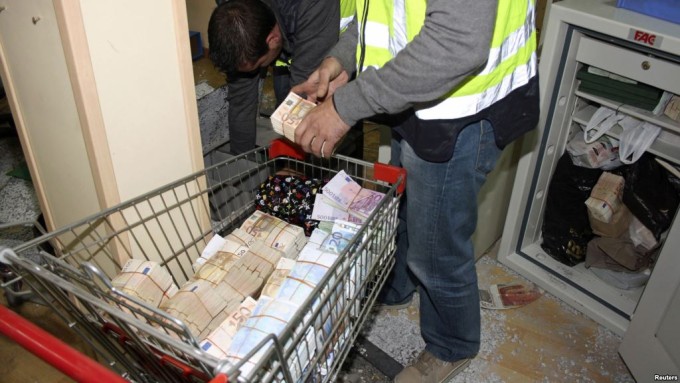 Money laundering and financial crimes in Panama
Money laundering and financial crimes in Panama



